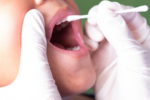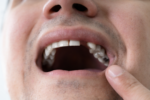Have you lost a tooth because of gum disease or decay? Have you ever been injured and lost multiple teeth as a result? Dental implants might be your best option if you say “yes” to these inquiries. Dental implants in Duncan support new teeth that seem natural while replacing the missing tooth’s roots. Do you not think it is time you joined the thousands of people whose smiles dental implants have restored? Contact our dental clinic right now to schedule dental implants to replace one or more teeth.
Single Implants
For the replacement of one or two teeth, there are various possibilities. The best choice mostly depends on the needs and treatment objectives of the patient. Dental bridges and dental implants are the two main alternatives for replacing a single lost tooth.
Using Dental Implants
Single tooth replacement with a dental implant and crown restoration is frequently one of the finest treatment alternatives for people who just have one or two lost teeth. The most realistic option for replacing missing teeth is to use a dental implant to replace just one tooth. Dental implants resemble the root of the tooth.
Because the jawbone physically binds to the implant once it is surgically put within the jaw, just like the jawbone naturally bonds to the tooth’s root, dental implants feel quite natural.
Patients need to be in good enough health to endure surgery in order to have dental implant therapy for single-tooth replacement. Additionally, they must have enough jawbone to sustain the dental implant. A bone transplant procedure may be used to repair the jaw for dental implant therapy if the jawbone is insufficient.
Using Dental Bridges
For those who prefer not to have surgery or who are unable to have surgery owing to underlying medical conditions, dental bridges are an excellent alternative because they are a non-invasive method of replacing a single tooth.
A false tooth is used to connect two crowns to create dental bridges. Following that, the crowns are affixed to the teeth next to the lost tooth, effectively replacing it.
Dental bridges can restore dental function, but they also have a number of drawbacks. Healthy teeth need to be filed down and modified in order to make room for the crowns that will hold the bridge in place. Another drawback is that the bridge may leave a tiny space between the gums and the artificial tooth. A bridge cleaner needs to be used to clean this region.
Multiple Tooth Implants
For replacing several teeth, there are various possibilities, much like for replacing a single tooth. A full set of missing teeth can be replaced with dental implants near you, which are a common option for restoring missing teeth.
Using Dental Implants
To replace more than two teeth or an entire arch of teeth, dental implants can be used in conjunction with implant-supported bridges or implant-supported dentures. Dental implants are connected to crowns, which are utilized with dental bridges to secure the bridge inside the mouth. This makes it possible to replace three or more teeth with just two dental implants.
A set of dentures is attached to the mouth using only four or six dental implants when employing implant-supported dentures. As a result, denture wearers can benefit from enhanced oral function and a secure fit since their dentures stay put during eating and speaking.
Using Standard Dentures
Of course, one can still replace several teeth with conventional dentures. Traditional, removable dentures may be the best choice for patients who are not healthy enough to undergo surgery or who do not want to undergo surgery, despite the fact that they do not offer the same secure fit and enhanced function as implant-supported dentures.
Factors to Consider When Choosing Between Single and Multiple Tooth Implants
There are a number of things to take into account while choosing a dental implant. These include the position and quantity of missing teeth, the jawbone’s health, and the patient’s general lifestyle and state of health.
Endosteal implants are typically a viable option for patients who have healthy teeth and enough jawbone density. Subperiosteal or detachable implants may be a preferable option for patients who have insufficient jawbone density or other medical issues that could slow the healing process.
The patient’s budget as well as the procedure’s cost should be taken into account. The most durable and long-lasting implants are usually endosteal implants, which are also the most expensive. Although removable implants are less expensive, they might not be as stable or durable as the other types.
In the end, selecting a dental implant type should be decided in consultation with a licensed and knowledgeable dentist near you. They can assess the patient’s particular requirements and choose the best course of action to make the patient’s smile seem healthy and natural.
Call Cowichan Valley Dental!
Waiting to replace missing teeth is not a good idea, whether you have one or several. Your jawbone will deteriorate more quickly the longer you put off getting missing teeth replaced.
If you are looking for a consultation on dental implants, get in touch with the dentist in Duncan right away. With years of experience installing dental implants, our dentist is prepared to assist you in regaining the smile you love.
FAQs:
How long does the dental implant process take?
The three phases that make up the dental implant procedure can vary depending on the individual. Usually, it takes 5 to 8 months to complete the process.
2. Will dental implants match the colour of my natural teeth?
Your implants will be matched to the colour and tone of the neighbouring teeth if you simply need a few teeth replaced. Teeth made of porcelain cannot be bleached. To get the shade and colour matched precisely, it is best to clean the neighbouring teeth beforehand.
3. How do I care for my dental implants after the procedure?
Pose yourself semi-reclined. Unless you feel faint, keep your head above your heart. For the next 24 hours, refrain from spitting, stooping, using a straw, and rinsing. No smoking or vigorous exercise for ten days.










